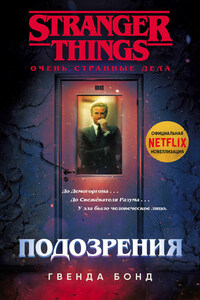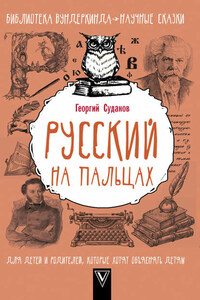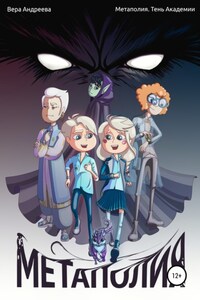Every great dream begins with a dreamer. Always remember, you have within you the strength, the patience, and the passion to reach for the stars to change the world.
Harriet Tubman
A dark orange paper lantern, hanging from an elaborately decorative centre rose of the high Victorian ceiling, provided barely enough light to illuminate the languidly twisting coils of silver smoke that filled the room. The air was thick with the smell of cannabis.
Young men and women, a mixture of long-haired hippies and short-haired punks, were sprawled over the floor smoking joints and drinking from cans. In one corner of the large room, looking either like a witch or a puritan, an earnest young woman in a high-necked maxi-dress was kneeling to roll a joint on a low, half-broken side table. She did it carefully and ritualistically. Several people nearby watched with interest, as though her performance formed part of an important ceremony.
A guy with a guitar was slumped in a beanbag trying to play Leonard Cohen’s famous blue dirge Famous Blue Raincoat, though no one was interested in his depressive mumbling. Eventually, someone decided he’d heard enough. A kid with spiky hair and an imitation leather jacket pierced with hundreds of safety pins and button badges skipped through the bodies strewn on the floor and pushed poor ‘Leonard’ off the beanbag.
“That’s shite by raway pal.” The punk sneered in a rough Glasgow voice. Then he shouted back over his shoulder: “Moira, put ra Pistols oan. Let’s get some life intae ris party.”
◆◆◆
Meanwhile, Stuart and Richard were quietly discussing something in the corner opposite the young woman rolling the joint.
“You’re all just wasting your time you know. All this marching and selling newspapers will never get you anywhere,” Richard stated.
“History, man. History’s on our side.”
“History bollocks. You guys are just kids. You’re just playing at this.”
“Eddie’s totally serious. Mibby worryingly serious.”Stuart spoke with a slight Glasgow accent which, though mild, sometimes influenced Richard to imitate it to some extent. After pausing to think for a moment he added, “I guess ye could say I’m more interested in an academic way myself.”
“I know that, man. See that PhD you’re doing, all that theory shit, ‘German philosophy from Hegel to Marx’, I don’t really get it. I wish I’d done some proper subjects myself; engineering say, instead of this politics and sociology crap.” Richard thought morosely for a few moments before perking up a bit. “Imagine if, years from now, your education finally pays off and you find yourself in a half-decent job. Let’s say no one even knows you’re a commie. What would happen if you could reconnect with all your comrades from the Party and put yourself at their disposal?”
“What could you do then that you can’t do now?”
“Who knows, man? But I bet you could do a damned sight more damage, or good I mean, than a hundred of these silly pot-smoking kids that think they’re being so cool and radical.”
“Mibby you’re right, but you’re not even a Party member. You’re just a guy who tags along; a fellow traveller. You’re not even interested in what the Party wants.”
“You’re right Stuart, I’m not. I’m not interested in all this posturing and posing, but, see if I thought I could do any good I would definitely do whatever it takes.”
“Like fuck ye would.”
“Course I would! And me not being a Party member would help anyway. I’m not on anyone’s radar. I’ve never even had my picture taken on any of your half-assed marches or demos.”
“‘Half-assed marches’? Yeah, right-e-o! How come you’ve never even come on a march or demo, ya bastard?”
“Waste of time man. Take all those stupid asses that demonstrated to save every last job in the shipyards. All it did was make sure that the yards couldn’t compete. Instead of saving jobs they made sure they all went.”
Stuart was eyeing him with suspicion. They had argued on this subject a number of times already and agreed to differ. Richard didn’t bother to bring the same old arguments up yet again but was dismayed that even Stuart didn’t seem to understand him. He was well aware that nobody in the Party took him seriously. For one thing his background was against him. But, more importantly, there was an ideological divide between him and the others. If he had to explain to these Marxists in terms that would be acceptable, it was the difference between Das Kapital and Der Grundrisse. Properly reading either Das Kapital or Der Grundrisse was not something he had bothered to do, but he believed the difference between them explained the difference between himself and the others. Ultimately, he was reluctant to describe himself as a Marxist of any kind. An anarchist called Kropotkin had more attractive ideas. But that was something best not mentioned at all.
“Oh jeezus!” Stuart blurted out.
“What?” Stuart jerked his head to the side in the direction of the door, which was being closed again after opening briefly.
“Line-up-Linda’s just arrived. She’s probably heading straight upstairs to get her legs in the air.”
Richard knew Stuart didn’t like Linda MacKerricher. He thought she was a slut. So she was; but Richard didn’t see anything wrong with that. She was a liberated and independent young woman. In fact Richard found her crazily sexy. He cursed his luck in not catching sight of her – probably wearing those kinky wet-look boots and that purple mini-skirt. Liberated and “easy” though she was, Richard could never pluck up the courage to even talk to her, let alone join in one of the orgies she was reputed to take part in.
“So why would a posh cunt like you even want to help?” Stuart continued, snapping Richard out of the reverie that Linda MacKerricher had unknowingly evoked.
“Lots of ‘posh cunts’ are revolutionaries. Most revolutionaries are posh cunts in fact – Marx himself, Lenin, Guevara… you name it.”
“Yeah, sure thing, Guildford boy.”
“Fuck you Mr Kelvinside Academy.” Richard knew that Stuart was as middle class as it was possible to be for a Glaswegian, but still had one over on him when it came to class-related, inverted snobbery. Richard’s parents now lived in Milngavie, having moved up to Scotland from Guildford when he was about three. In the mindset of most Glaswegians, Richard was a toff – almost aristocracy.








